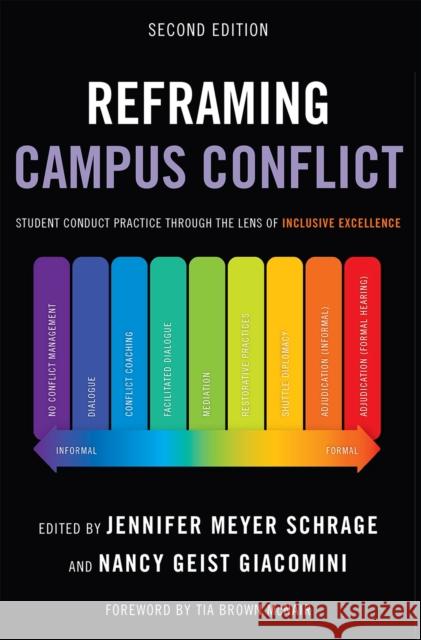topmenu
Wyniki wyszukiwania:
wyszukanych pozycji: 2
 |
Reframing Campus Conflict: Student Conduct Practice Through the Lens of Inclusive Excellence
ISBN: 9781642670486 / Angielski / Twarda / 2020 / 430 str. Termin realizacji zamówienia: ok. 16-18 dni roboczych. |
cena:
754,51 |
 |
Reframing Campus Conflict : Student Conduct Practice Through a Social Justice Lens
ISBN: 9781579224080 / Angielski / Twarda / 2009 Termin realizacji zamówienia: ok. 30 dni roboczych. How many hate or bias incidents occurred on your campus this past year? Did any students opt out of filing formal charges? How many completed a formal resolution process, and what happened? Would you have liked to have other conflict resolution options?
-This publication is endorsed by ASCA as a collaborative, collegial new lens through which to consider how social justice practices and student conduct administration can come together to inform best practices in conduct and conflict management on college and university campuses.-- Tamara J. King, J.D., 2009 President,... How many hate or bias incidents occurred on your campus this past year? Did any students opt out of filing formal charges? How many completed a for...
|
cena:
645,62 |










